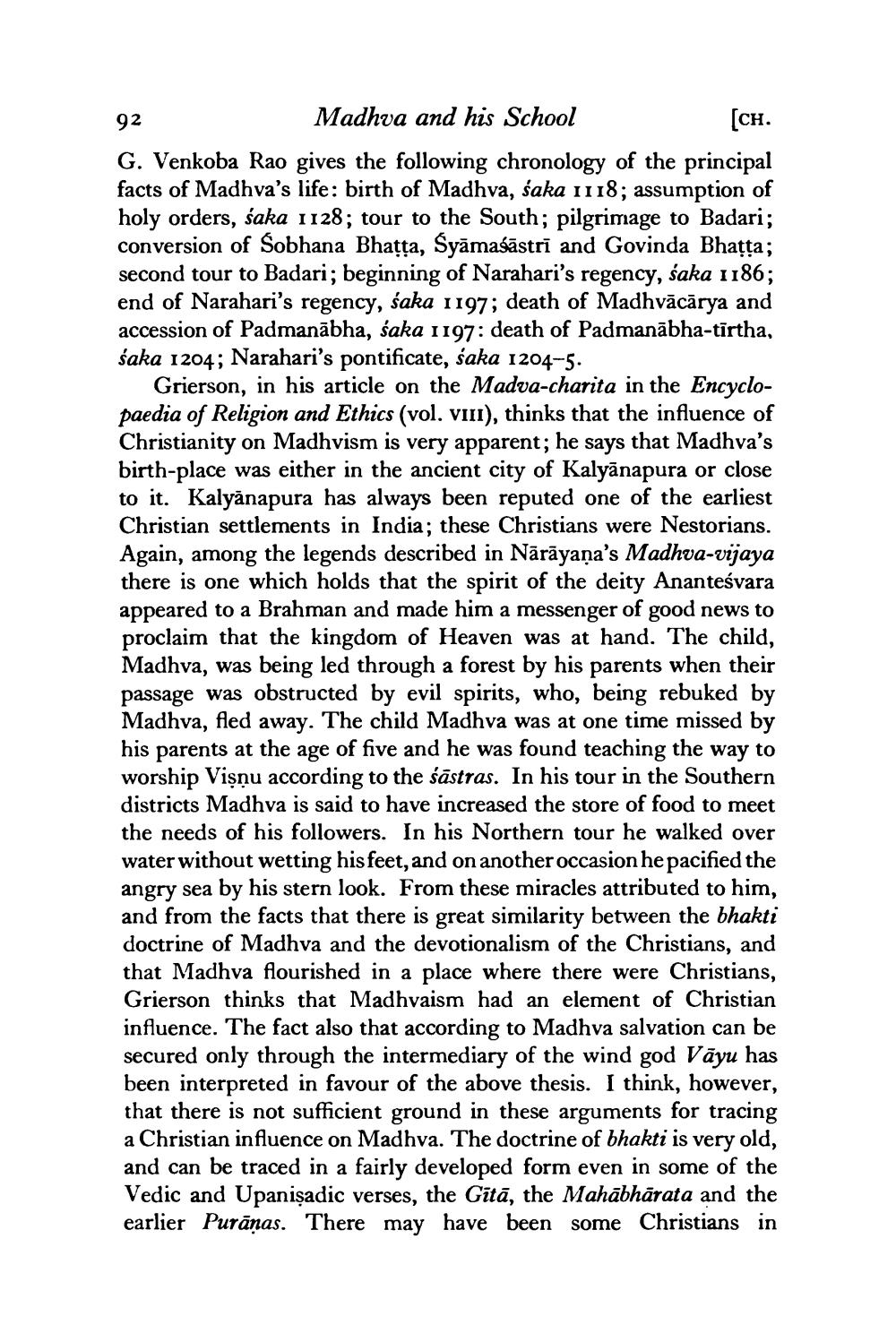________________
92 Madhva and his School
[CH. G. Venkoba Rao gives the following chronology of the principal facts of Madhva's life: birth of Madhva, šaka 1118; assumption of holy orders, saka 1128; tour to the South; pilgrimage to Badari; conversion of Sobhana Bhatta, Syāmaśāstrī and Govinda Bhatta; second tour to Badari; beginning of Narahari's regency, saka 1186; end of Narahari's regency, śaka 1197; death of Madhvācārya and accession of Padmanabha, śaka 1197: death of Padmanābha-tīrtha, śaka 1204; Narahari's pontificate, saka 1204-5.
Grierson, in his article on the Madva-charita in the Encyclopaedia of Religion and Ethics (vol. vini), thinks that the influence of Christianity on Madhvism is very apparent; he says that Madhva's birth-place was either in the ancient city of Kalyānapura or close to it. Kalyānapura has always been reputed one of the earliest Christian settlements in India; these Christians were Nestorians. Again, among the legends described in Nārāyaṇa's Madhva-vijaya there is one which holds that the spirit of the deity Ananteśvara appeared to a Brahman and made him a messenger of good news to proclaim that the kingdom of Heaven was at hand. The child, Madhva, was being led through a forest by his parents when tl passage was obstructed by evil spirits, who, being rebuked by Madhva, fled away. The child Madhva was at one time missed by his parents at the age of five and he was found teaching the way to worship Vişnu according to the śāstras. In his tour in the Southern districts Madhva is said to have increased the store of food to meet the needs of his followers. In his Northern tour he walked over water without wetting his feet, and on another occasion he pacified the angry sea by his stern look. From these miracles attributed to him, and from the facts that there is great similarity between the bhakti doctrine of Madhva and the devotionalism of the Christians, and that Madhva flourished in a place where there were Christians, Grierson thinks that Madhvaism had an element of Christian influence. The fact also that according to Madhva salvation can be secured only through the intermediary of the wind god Vāyu has been interpreted in favour of the above thesis. I think, however, that there is not sufficient ground in these arguments for tracing a Christian influence on Madhva. The doctrine of bhakti is very old, and can be traced in a fairly developed form even in some of the Vedic and Upanișadic verses, the Gītā, the Mahābhārata and the earlier Purāņas. There may have been some Christians in




